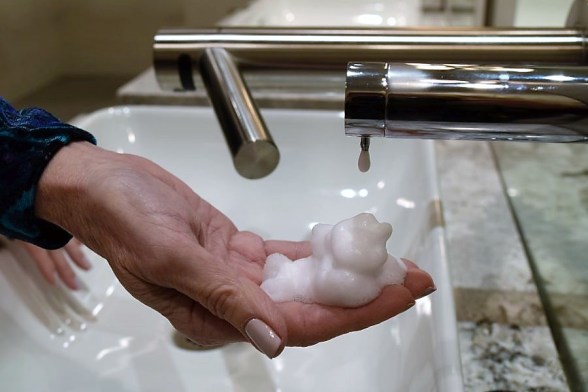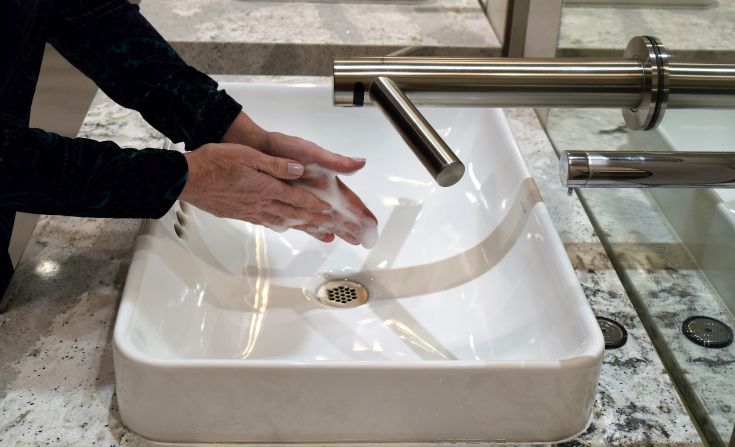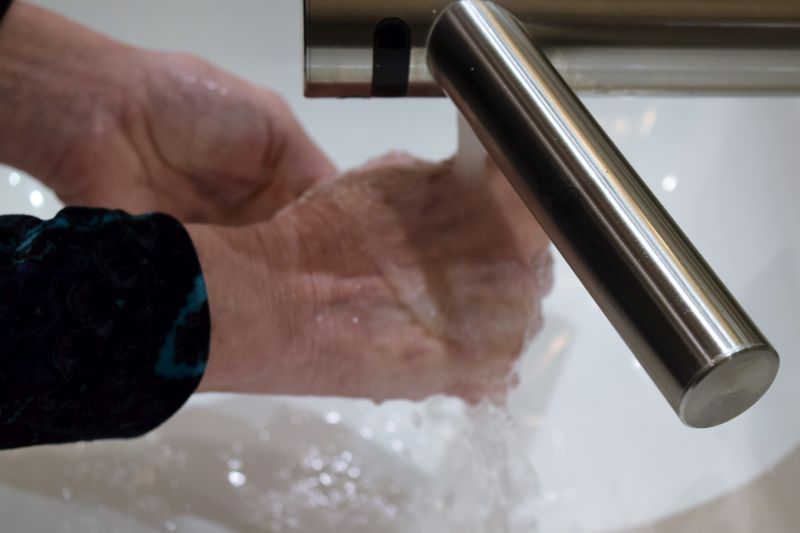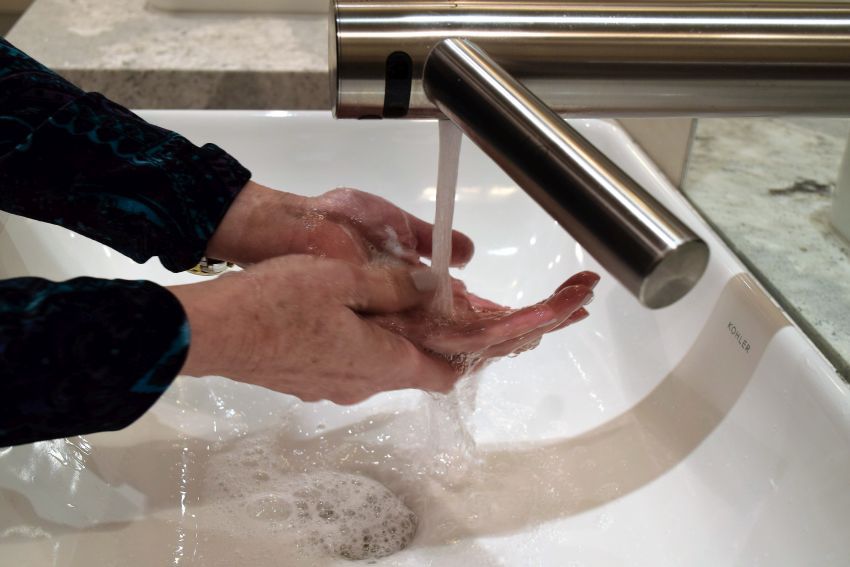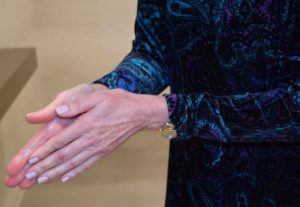Washing hands is one of the most important steps to avoid illnesses like the flu, but if you don’t do it the right way, you may not get rid of harmful bacteria.
Caroline Cartledge, MSN, a nurse and instructor with the University of Alabama at Birmingham School of Nursing, details the right way to make sure your hands are as clean as possible, and she tackles common myths about ways to keep the germs away, especially during flu season.
Video produced by UAB Visual Content.
[su_youtube url=”https://youtu.be/cViNneQbPyA” autoplay=”yes” class=”center”][su_youtube url=”https://www.youtube.com/watch?v=N_6jwv4NNJ0″ responsive=”no”][/su_youtube]Q: When and how often should we wash our hands? How does it help prevent the flu?
A: Wash your hands as much as you can. We always recommend hand-washing before you eat anything, before you make food for other people, and after you use the restroom. I wash my hands any time I touch a doorknob; if there is hand sanitizer around, I always use it.
People touch their faces more often than they realize. Every time you touch a door handle and then scratch your nose, you are susceptible to contracting viruses like influenza.
Q: How long should you wash your hands?
A: You should lather your hands with soap and water for at least 20 seconds. A good rule of thumb is to sing or hum “Happy Birthday” to yourself twice.
Q: What is the best method of washing your hands?
A: It is generally best to wash your hands with soap and water. The best method is to follow these steps:
- Wet your hands with running water.
- Put soap in your palm and lather.
- Rub your hands, palm to palm, vigorously for at least 20 seconds. Make sure you scrub all surfaces, including the backs of your hands, wrists, between your fingers and under your fingernails.
- Rinse well.
- Dry your hands with a clean paper towel.
- Use the towel to turn off the faucet before you throw it away.
Q: Many people think the water temperature should be hot to help kill bacteria, but does the water temperature matter?
A: It doesn’t. Actually, what removes the germs when you wash your hands is the friction you create by rubbing your hands together and creating a lather, removing microbes from the skin. This is why covering all surfaces of your hands and scrubbing for 20 seconds is so important. I would not recommend using hot water because it actually contributes to the dryness of your skin.
Q: Does the type of soap matter?
A: We recommend liquid pump soap. We do not recommend bar soap because it can harbor bacteria, although bar soap is better than no soap at all.
Q: What about antibacterial soap versus regular soap?
A: Antibacterial soap is reserved primarily for medical use and for those with weakened immune systems. We actually recommend using regular soap over antibacterial products for the general public in order to cut down on the rise of antibacterial resistance.
Q: How effective is hand sanitizer, and what should you look for when buying it?
A: We absolutely recommend using hand sanitizer when soap and water are not available. Make sure it has at least 60 percent alcohol in it for it to be effective. Next to hand-washing, it is the second-best option to remove and prevent the spread of germs.
According to the Centers for Disease Control and Prevention, alcohol-based hand sanitizers do not kill all types of germs, such as a stomach bug called norovirus, some parasites and Clostridium difficile, which causes severe diarrhea. Hand sanitizers also may not remove harmful chemicals, such as pesticides and heavy metals like lead. Hand-washing reduces the amounts of all types of germs, pesticides and metals on hands.
This story via Alabama NewsCenter.
H. Gainer for Alabama NewsCenter | © 2018, alabamanewscenter.com


